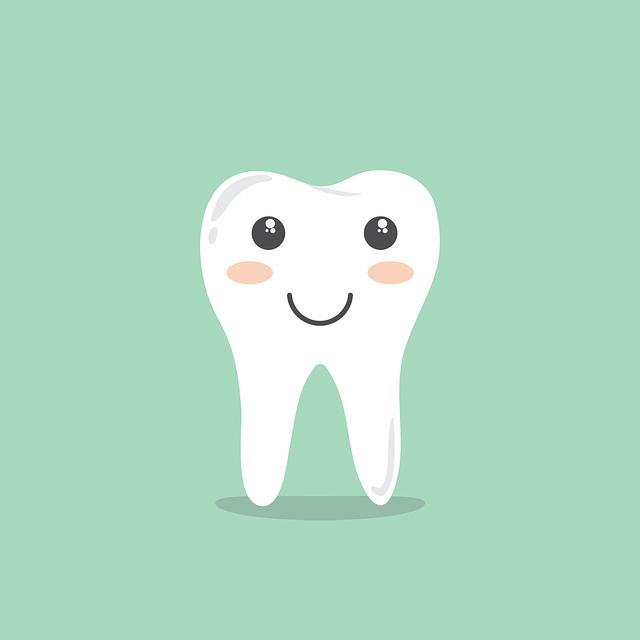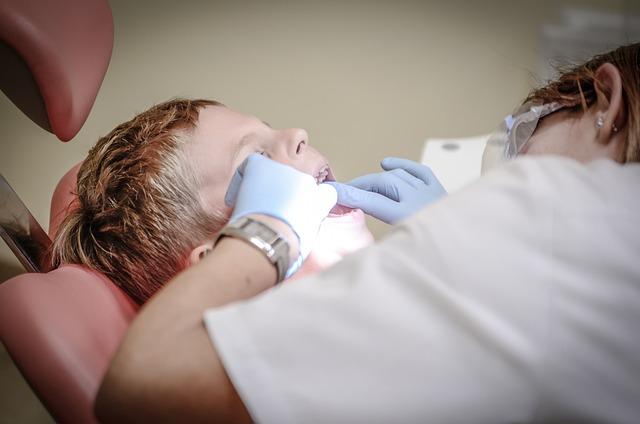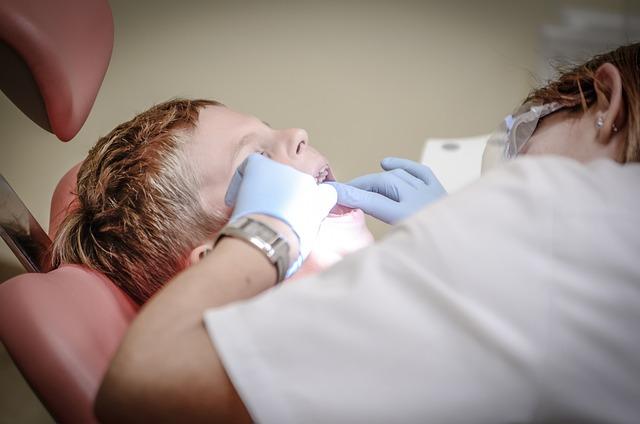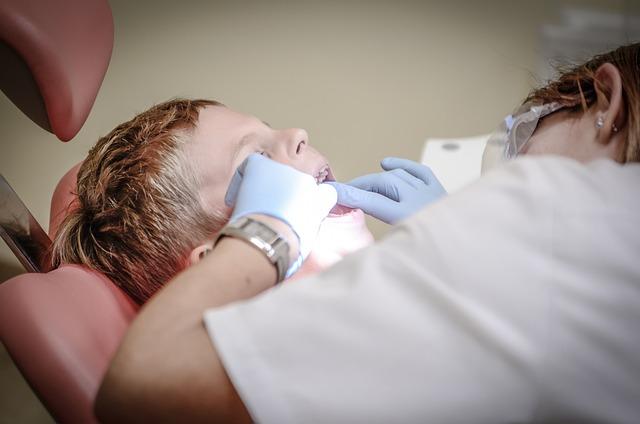Should You Brush Teeth After Saltwater Rinse? Dental Dos and Don’ts
Are you a fan of the salty ocean breeze and the refreshing feeling it brings? If so, you may have considered rinsing your mouth with saltwater as a natural remedy for oral health. But what comes next? Should you brush your teeth immediately after a saltwater rinse, or is there a better approach? In this article, we will delve into the dental dos and don’ts surrounding saltwater rinses, providing you with confident, knowledgeable, and neutral insights to help you make the best decisions for your oral hygiene. So, let’s dive right in and explore the fascinating world of saltwater rinses and their impact on your dental care routine.
1. The Importance of Saltwater Rinses in Dental Care: What You Need to Know
Using saltwater rinses in dental care can have numerous benefits for maintaining oral health. Here’s what you need to know:
1. Promotes healing: Saltwater rinses are known for their ability to accelerate the healing process. The salt acts as a natural disinfectant and reduces inflammation, helping to soothe oral wounds, gum infections, and canker sores.
2. Fights bacteria: Saltwater is an effective antibacterial agent that can help eliminate harmful bacteria from the mouth. It can reach areas that brushing and flossing might miss, reducing the risk of gum disease and tooth decay.
3. Relieves discomfort: If you’re experiencing toothaches, sore throat, or any other oral discomfort, a saltwater rinse can provide temporary relief. The warm saline solution can help ease pain and reduce swelling, making it an excellent home remedy for minor oral issues.
Make sure to consult your dentist before incorporating saltwater rinses into your oral care routine. They can provide personalized advice and recommend the appropriate frequency and concentration of saltwater rinses based on your specific needs.

2. Understanding the Purpose and Benefits of Saltwater Rinses for Oral Health
Using saltwater rinses for oral health can be an effective and natural way to maintain a healthy mouth. Saltwater rinses, also known as saline rinses, are made by dissolving salt in warm water. They have been used for centuries to treat various oral health issues and provide numerous benefits.
Here are some reasons why saltwater rinses can be beneficial for oral health:
- Reducing inflammation: Saltwater has anti-inflammatory properties that can help reduce inflammation in the gums and other oral tissues. This can be particularly helpful for individuals with gum disease or those who have recently undergone oral surgery.
- Killing bacteria: Saltwater has antimicrobial properties that can help kill bacteria and prevent infections in the mouth. It can be especially beneficial for individuals with mouth sores or wounds.
- Relieving pain and discomfort: Saltwater rinses can provide temporary relief from pain, soreness, and discomfort in the mouth. They can also help soothe a sore throat or alleviate the symptoms of a cold or flu.
It is important to note that saltwater rinses should not replace regular brushing and flossing. They should be used as a supplementary oral hygiene practice. If you are unsure about using saltwater rinses or have any concerns, it is always best to consult with a dental professional.
3. Debunking the Myth: Should You Brush Your Teeth After a Saltwater Rinse?
Contrary to popular belief, brushing your teeth immediately after a saltwater rinse may not be the best practice for oral hygiene. Here’s why:
1. Enamel protection: Saltwater rinses can help neutralize acids in your mouth and promote a healthy pH balance. However, brushing immediately after can potentially damage your tooth enamel, especially if you use a toothbrush with hard bristles. It’s best to wait at least 30 minutes to allow your enamel to remineralize before brushing.
2. Gum sensitivity: Saltwater rinses are often recommended for soothing gum inflammation and reducing bacteria. Brushing right away can be abrasive on sensitive gums, causing further irritation. Give your gums some time to heal and recover before brushing to prevent discomfort and potential damage.
3. Enhanced effectiveness: If you’re using a saltwater rinse as part of your oral care routine, it’s more beneficial to brush your teeth before rinsing. This allows the toothpaste to effectively remove plaque and debris, while the saltwater rinse can serve as a final step to freshen your breath and promote gum health.
Remember, it’s always best to consult with your dentist or oral healthcare professional for personalized advice on oral hygiene practices that suit your specific needs.
4. Dental Dos: How to Incorporate Saltwater Rinses into Your Oral Hygiene Routine
When it comes to maintaining good oral hygiene, incorporating saltwater rinses into your routine can provide numerous benefits. Not only is it a natural and cost-effective solution, but it also helps promote a healthy mouth. Here are some simple steps to help you incorporate saltwater rinses into your daily oral care:
- Mix the solution: Start by mixing half a teaspoon of salt in warm water. Stir until the salt dissolves completely.
- Rinse your mouth: Take a sip of the saltwater solution and swish it around your mouth for about 30 seconds. Make sure to reach all areas, including the gums and the back of your throat.
- Spit it out: After rinsing, spit out the solution into the sink. Avoid swallowing it, as it may cause discomfort.
- Repeat twice a day: For optimal results, incorporate saltwater rinses into your oral hygiene routine twice a day, preferably after brushing your teeth.
By following these simple steps, you can effectively incorporate saltwater rinses into your oral hygiene routine. Remember, though, that saltwater rinses should not replace brushing and flossing. They should be used as an additional step to enhance your overall oral health. If you have any concerns or questions, consult your dentist for personalized advice.
5. The Science Behind Saltwater Rinses: Exploring their Antimicrobial Properties
Saltwater rinses have long been used as a natural remedy for various oral health issues. This is due to their remarkable antimicrobial properties, which have been studied extensively by scientists and researchers. Here, we delve into the science behind these rinses and explore how they effectively combat harmful bacteria in the mouth.
One of the key components of saltwater rinses is sodium chloride, or table salt. When dissolved in water, sodium chloride releases ions that help create an inhospitable environment for bacteria. These ions have a dehydrating effect on the bacteria, causing them to shrink and ultimately die off. The hypertonic nature of saltwater also draws moisture out of bacterial cells, further inhibiting their growth and survival.
Moreover, saltwater rinses have been found to disrupt the biofilm formation on teeth and gums. Biofilms are communities of bacteria that adhere to surfaces, forming a protective layer. By breaking down this biofilm, saltwater rinses prevent bacteria from colonizing and causing dental problems such as plaque buildup and gum disease.
- Saltwater rinses are a natural alternative to chemical mouthwashes.
- They are cost-effective and easy to prepare at home.
- Regular use of saltwater rinses can help reduce bad breath.
Overall, the science behind saltwater rinses highlights their effectiveness in combating oral bacteria and maintaining oral health. Incorporating this simple yet powerful practice into your oral hygiene routine can provide numerous benefits without the use of harsh chemicals.
6. Don’t Let It Compromise Your Oral Health: Common Mistakes to Avoid with Saltwater Rinses
Saltwater rinses can be a great addition to your oral hygiene routine, but it’s important to use them correctly to avoid any negative effects on your oral health. Here are some common mistakes to avoid when using saltwater rinses:
1. Using too much salt: While salt is an essential ingredient in a saltwater rinse, using too much can actually be harmful to your oral health. It’s recommended to use about half a teaspoon of salt in a cup of warm water. This concentration is effective in killing bacteria and soothing gum inflammation without causing any discomfort.
2. Rinsing too frequently: While saltwater rinses can provide relief and promote healing, it’s important not to overdo it. Rinsing your mouth with saltwater too frequently can disrupt the natural balance of bacteria in your mouth and lead to dryness. Stick to rinsing just a few times a day, or as advised by your dentist.
3. Not rinsing long enough: To get the most benefits from a saltwater rinse, it’s important to swish the solution around in your mouth for at least 30 seconds. This allows the saltwater to come into contact with all areas of your mouth, including your gums and teeth, providing maximum effectiveness in killing bacteria and reducing inflammation.
Remember, saltwater rinses are not a substitute for regular brushing and flossing. They should be used as a supplemental treatment to maintain good oral hygiene. If you have any concerns or questions about saltwater rinses, don’t hesitate to consult with your dentist for personalized advice.
7. Taking Care of Your Teeth: Combining Saltwater Rinses with Proper Brushing Techniques
Combining saltwater rinses with proper brushing techniques is a highly effective way to take care of your teeth and maintain good oral hygiene. Saltwater rinses have been used for centuries as a natural remedy for various dental issues, thanks to their antibacterial and anti-inflammatory properties. When used in conjunction with proper brushing techniques, they can provide additional benefits for your oral health.
Here are some key points to keep in mind when incorporating saltwater rinses into your dental routine:
- Prepare the saltwater rinse: Dissolve half a teaspoon of salt in a glass of warm water. Stir it well to ensure the salt is fully dissolved.
- Rinse after brushing: After brushing your teeth with a fluoride toothpaste, take a small sip of the saltwater rinse and swish it around your mouth for about 30 seconds.
- Spit, don’t swallow: It’s important to spit out the saltwater rinse after use, as swallowing it can cause discomfort or an upset stomach.
- Repeat as needed: You can use saltwater rinses once or twice a day, depending on your dental needs. However, it’s always best to consult with your dentist for personalized advice.
Remember, while saltwater rinses can provide additional benefits, they should never replace proper brushing techniques. Brush your teeth at least twice a day for two minutes each time, using gentle circular motions. Don’t forget to replace your toothbrush every three to four months or sooner if the bristles become frayed.
8. Enhance Your Dental Routine: Additional Dental Dos and Don’ts for Optimal Oral Hygiene
When it comes to maintaining optimal oral hygiene, there are a few additional dental dos and don’ts that can enhance your dental routine. By incorporating these practices into your daily life, you can improve the health of your teeth and gums, ensuring a beautiful smile for years to come.
Dos:
- Brush your teeth at least twice a day for two minutes using a fluoride toothpaste. This helps remove plaque, prevent cavities, and freshen your breath.
- Floss daily to clean the areas between your teeth that a toothbrush can’t reach. This helps remove plaque and reduces the risk of gum disease.
- Use mouthwash to rinse your mouth after brushing and flossing. Look for an alcohol-free mouthwash that contains fluoride to strengthen your teeth and provide additional protection against cavities.
- Replace your toothbrush every three to four months or sooner if the bristles become frayed. This ensures effective cleaning and prevents the buildup of bacteria on your toothbrush.
Don’ts:
- Avoid smoking or using tobacco products, as they can stain your teeth, cause bad breath, and increase the risk of oral cancer.
- Avoid excessive consumption of sugary and acidic foods and beverages. These can contribute to tooth decay and erosion, so it’s important to limit their intake.
- Avoid using your teeth as tools to open bottles, tear packaging, or bite nails. This can chip or fracture your teeth and potentially lead to more serious dental problems.
By following these additional dental dos and don’ts, you can enhance your dental routine and maintain optimal oral hygiene. Remember, regular dental check-ups and professional cleanings are also crucial for a healthy smile, so be sure to schedule appointments with your dentist regularly.
9. Exploring Alternative Benefits: Saltwater Rinses for Gum Health and Tooth Sensitivity
Saltwater rinses have long been used as a natural remedy for gum health and tooth sensitivity. The benefits of these rinses go beyond just freshening your breath. Incorporating saltwater rinses into your oral hygiene routine can provide a range of alternative benefits that promote gum health and alleviate tooth sensitivity.
Here are some key advantages of using saltwater rinses:
1. Reduces inflammation: The saline solution created by saltwater rinses has natural anti-inflammatory properties. Gently swishing this solution in your mouth can help reduce gum inflammation, providing relief for conditions like gingivitis and periodontitis.
2. Promotes healing: Saltwater rinses can aid in the healing process of gum tissues. They help to cleanse wounds and promote the growth of new cells, accelerating the healing of mouth sores, ulcers, and other oral injuries.
3. Relieves tooth sensitivity: If you struggle with tooth sensitivity, saltwater rinses can be a cost-effective and natural solution. The rinse helps to desensitize the nerve endings in your teeth, reducing the discomfort caused by hot or cold foods and drinks.
To create a saltwater rinse, simply dissolve half a teaspoon of salt in a cup of warm water. Swish the solution around your mouth for about 30 seconds before spitting it out. Incorporating this simple yet effective practice into your oral hygiene routine can contribute to healthier gums and reduced tooth sensitivity.
10. Making Informed Decisions: Consulting with Your Dentist about Saltwater Rinses
When it comes to maintaining good oral hygiene, consulting with your dentist about saltwater rinses can be a valuable step towards making informed decisions. Saltwater rinses, also known as saline rinses, have been used for centuries to treat various dental issues. They are known for their natural antiseptic properties, which can help reduce inflammation and promote healing in the mouth.
During your consultation with your dentist, they will be able to provide you with personalized advice on the use of saltwater rinses based on your specific dental needs. They can help you understand the benefits of incorporating saltwater rinses into your oral care routine and guide you on the proper frequency and duration of use. Additionally, your dentist can address any concerns or questions you may have regarding saltwater rinses, ensuring that you are well-informed.
It is important to note that while saltwater rinses can be a useful adjunct to your oral hygiene routine, they should not replace regular brushing and flossing. Your dentist will likely recommend using saltwater rinses in combination with other dental care practices to maximize their effectiveness. Remember to follow the instructions provided by your dentist and maintain regular dental check-ups to ensure optimal oral health.
Frequently Asked Questions
Q: Should I brush my teeth after a saltwater rinse?
A: Yes, it is recommended to brush your teeth after a saltwater rinse.
Q: Why is brushing after a saltwater rinse important?
A: Brushing after a saltwater rinse helps remove any remaining debris and bacteria from your teeth and gums.
Q: Can brushing immediately after a saltwater rinse damage my teeth?
A: No, it will not cause any damage if done correctly.
Q: How should I brush my teeth after a saltwater rinse?
A: Use a soft-bristled toothbrush and fluoride toothpaste to gently brush your teeth in circular motions.
Q: How long should I brush my teeth after a saltwater rinse?
A: Brush your teeth for at least two minutes, ensuring that all surfaces are thoroughly cleaned.
Q: Are there any dental dos and don’ts I should follow?
A: Yes, it is important to follow some dental dos and don’ts for optimal oral health.
Q: What are some dental dos?
A: Some dental dos include brushing your teeth at least twice a day, flossing daily, and visiting your dentist regularly for check-ups.
Q: What are some dental don’ts?
A: Some dental don’ts include avoiding excessive consumption of sugary foods and drinks, smoking, and neglecting oral hygiene practices.
Q: Can saltwater rinses replace regular brushing and flossing?
A: No, saltwater rinses should not replace regular brushing and flossing. They are meant to be used as a supplementary measure for oral hygiene.
Q: Is it safe to use saltwater rinses daily?
A: Yes, saltwater rinses are generally safe for daily use, but it is always best to consult with your dentist for specific recommendations.
Q: Are there any side effects of using saltwater rinses?
A: Saltwater rinses are generally safe, but excessive use may cause dryness or irritation of the oral tissues. If you experience any discomfort, discontinue use and consult your dentist.
Final Thoughts
In conclusion, the question of whether you should brush your teeth after a saltwater rinse boils down to a simple answer: Yes, you should! Saltwater rinses can be an effective way to promote oral health and combat certain dental issues. However, it’s important to follow proper dental dos and don’ts to maximize the benefits. Here are the key takeaways to keep in mind:
1. Saltwater rinses can help reduce inflammation and promote healing. They are particularly useful for soothing gum problems, mouth sores, and minor dental injuries.
2. After a saltwater rinse, it is recommended to wait for at least 30 minutes before brushing your teeth. This allows the beneficial effects of the rinse to take effect and prevents any potential damage to your tooth enamel.
3. Brushing your teeth after a saltwater rinse helps remove any remaining debris and bacteria, leaving your mouth feeling fresh and clean.
4. Remember to use a soft-bristled toothbrush and a fluoride toothpaste to gently clean your teeth. Avoid vigorous brushing, as it can cause gum recession and enamel erosion.
5. While saltwater rinses can be beneficial, they should not replace regular brushing, flossing, and routine dental visits. Maintaining a comprehensive oral hygiene routine is essential for overall dental health.
By following these dental dos and don’ts, you can confidently incorporate saltwater rinses into your oral care routine. Remember, a healthy smile starts with proper dental practices and a little knowledge can go a long way in maintaining your oral well-being.






